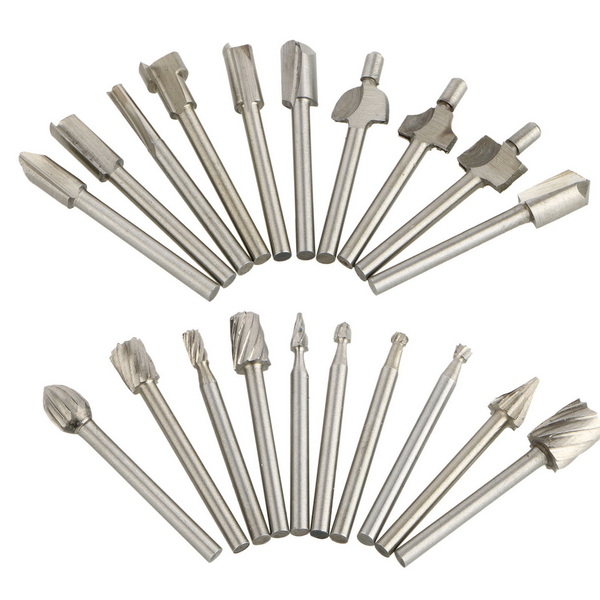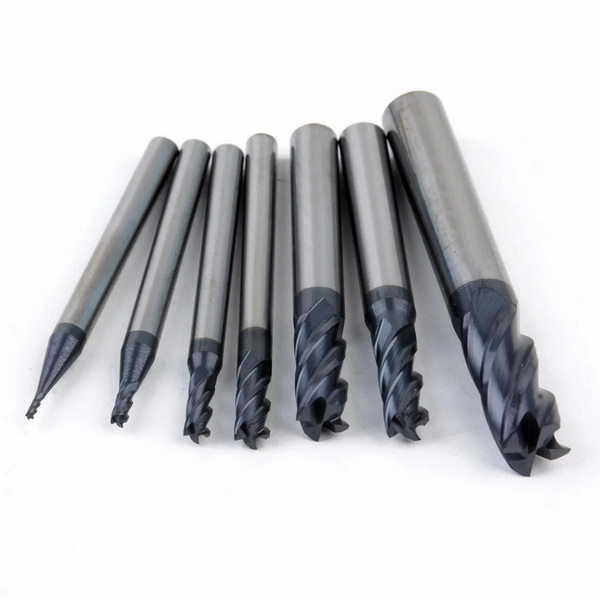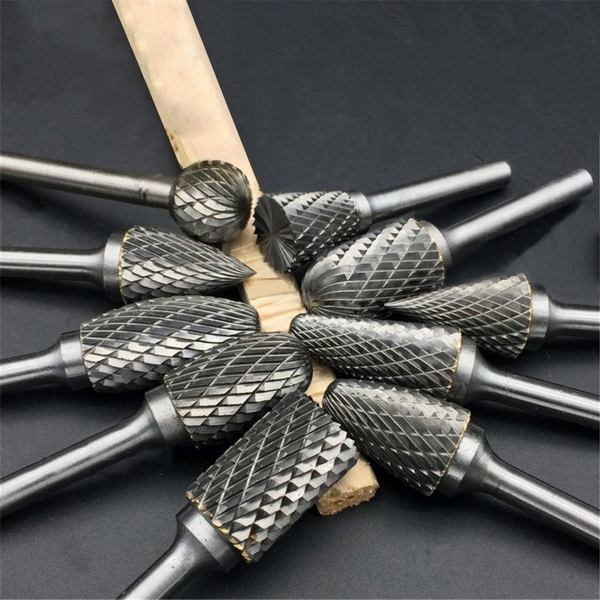Content Menu
● What is Tungsten Carbide?
>> Key Properties of Tungsten Carbide
● Why Does Tungsten Carbide Lose Its Edge?
● Sharpening Tungsten Carbide: The Process
>> Tools Required
>> Step-by-Step Guide to Sharpening Tungsten Carbide
● Common Applications of Sharpened Tungsten Carbide
● Limitations and Considerations
● Conclusion
● Frequently Asked Questions (FAQ)
>> 1. Why is tungsten carbide harder to sharpen than steel?
>> 2. Can I sharpen tungsten carbide at home?
>> 3. How often should tungsten carbide tools be sharpened?
>> 4. What are the risks of improper sharpening?
>> 5. Are there professional services for sharpening tungsten carbide?
● Citations:
Tungsten carbide is a remarkable material, celebrated for its incredible hardness and resistance to wear. It's a popular choice for cutting tools, industrial equipment, and even jewelry. However, all tools and materials, no matter how durable, lose their edge over time. This leads to a commonly asked question: Can tungsten carbide be sharpened? The answer is a resounding yes, though the process isn't as straightforward as sharpening steel or softer materials. In this article, we'll explore the properties of tungsten carbide, the sharpening process, and its applications in various industries.

What is Tungsten Carbide?
Tungsten carbide is a composite material made by combining tungsten and carbon atoms, often with other metallic elements like cobalt or nickel as a binder. The result is an extremely hard and dense material that is widely used for cutting tools, machining equipment, and wear-resistant applications. Tungsten carbide is about twice as stiff as steel and ranks 9 on the Mohs hardness scale, just below diamond.
Key Properties of Tungsten Carbide
- Hardness: High resistance to scratches and deformation.
- Wear Resistance: Withstands prolonged exposure to abrasive materials.
- Brittleness: While hard, tungsten carbide can chip or break if subjected to extreme forces or improper handling.
- Corrosion Resistance: Resistant to rust and oxidation in many environments.
Why Does Tungsten Carbide Lose Its Edge?
Even though tungsten carbide is extremely durable, it will gradually wear down over time. The loss of sharpness typically occurs for the following reasons:
- Thermal Stress: Heat generated from high-speed operations can cause microcracks.
- Abrasive Wear: Continuous interaction with hard materials can dull the edge.
- Impact Damage: Improper usage or accidents can chip the material.
High-precision tools made of tungsten carbide, such as drill bits, saw blades, and knives, need to be sharpened periodically to maintain optimal performance.
Sharpening Tungsten Carbide: The Process
Sharpening tungsten carbide is a specialized task that requires the right tools, techniques, and safety precautions. Due to its hardness, conventional sharpening methods for softer materials like steel will not work. Below, we'll walk through the key steps to sharpen tungsten carbide effectively.
Tools Required
To sharpen tungsten carbide, you'll need specific tools designed to handle its hardness:
- Diamond Grinding Wheel: Diamond is one of the few materials harder than tungsten carbide, making it ideal for the task.
- High-Speed Buffer or Grinder: A machine capable of providing consistent rotational speed.
- Protective Equipment: Safety goggles, gloves, and a dust mask to prevent inhalation of fine particles.
Step-by-Step Guide to Sharpening Tungsten Carbide
1. Inspect the Tool
Examine the tungsten carbide tool to determine the extent of wear. Identify whether the edge is dull or chipped. Tools with severe damage may require professional services.
2. Secure the Tool
Clamp the tool securely in place to prevent any movement during sharpening. This ensures consistency and minimizes the risk of accidents.
3. Select the Right Diamond Wheel
Choose a diamond grinding wheel with an appropriate grit size. Fine-grit wheels are better for polishing, while coarse-grit wheels are ideal for reshaping or repairing heavily worn edges.
4. Begin Sharpening
Position the diamond grinding wheel at the correct angle to the tool's beveled edge. Apply light and steady pressure while moving the tool across the wheel. Avoid overheating by pausing intermittently or using a coolant to dissipate heat.
5. Polish and Test
Once the edge is sharp, use a finer grit or polishing wheel to refine the edge. Test the tool on a sample material to ensure it performs as expected.

Common Applications of Sharpened Tungsten Carbide
Sharpened tungsten carbide tools are essential in various industries:
- Manufacturing: Used for precision cutting, milling, and drilling.
- Mining: Essential for breaking through hard rock formations.
- Woodworking: High-speed tools for shaping and cutting wood.
- Jewelry Making: Files and blades for intricate designs.
- Medical Equipment: Surgical tools and instruments.
Limitations and Considerations
While sharpening tungsten carbide is possible, there are limitations to keep in mind:
- Material Loss: Each sharpening session removes a small amount of material, gradually shortening the tool's lifespan.
- Specialized Equipment: The cost of diamond grinding wheels and sharpening machines can be significant.
- Skill and Precision: Improper technique can damage the tool or compromise its performance.
For high-value or critical tools, professional sharpening services are often recommended.
Conclusion
So, can tungsten carbide be sharpened? Absolutely! With the right tools, techniques, and patience, this incredibly durable material can be restored to its original sharpness. Whether you're working in manufacturing, woodworking, or mining, maintaining sharp tungsten carbide tools is essential to achieving precision and efficiency. However, due to the challenges and specialized equipment required, it's crucial to approach the sharpening process with care.

Frequently Asked Questions (FAQ)
1. Why is tungsten carbide harder to sharpen than steel?
Tungsten carbide's extreme hardness makes it resistant to wear but also challenging to sharpen. Steel can be sharpened with softer abrasives, while tungsten carbide requires diamond grinding wheels.
2. Can I sharpen tungsten carbide at home?
Yes, but you'll need specialized equipment like a diamond grinding wheel and a high-speed grinder. Additionally, proper safety precautions are essential to avoid injury.
3. How often should tungsten carbide tools be sharpened?
The frequency of sharpening depends on the tool's usage. Tools used in abrasive or high-impact environments may need sharpening more frequently, while those used occasionally can last longer.
4. What are the risks of improper sharpening?
Incorrect sharpening techniques can damage the tool's cutting edge, reduce its lifespan, or render it unusable. Overheating poses another risk, causing microcracks in the material.
5. Are there professional services for sharpening tungsten carbide?
Yes, many companies specialize in sharpening tungsten carbide tools. They use advanced equipment to ensure precision and minimize material loss.
Citations:
[1] https://passionblade.com/what-is-the-best-way-to-sharpen-tungsten-carbide-blade/
[2] https://www.youtube.com/watch?v=ikCBVvZ7ZcA
[3] https://weldingempire.com/how-to-sharpen-a-tungsten-electrode/
[4] https://www.youtube.com/watch?v=KRk9_88LfXs
[5] https://www.youtube.com/watch?v=AuHQY300Aac
[6] https://www.ehow.com/how_7822285_sharpen-tungsten-carbide.html
[7] https://www.mtb2b.tw/en/articles/182
[8] https://www.facebook.com/hardwoodmills/videos/sharpening-tungsten-carbide-blades-with-the-hardwood-mill-sharpener-the-diamond-/1313449065698289/
















